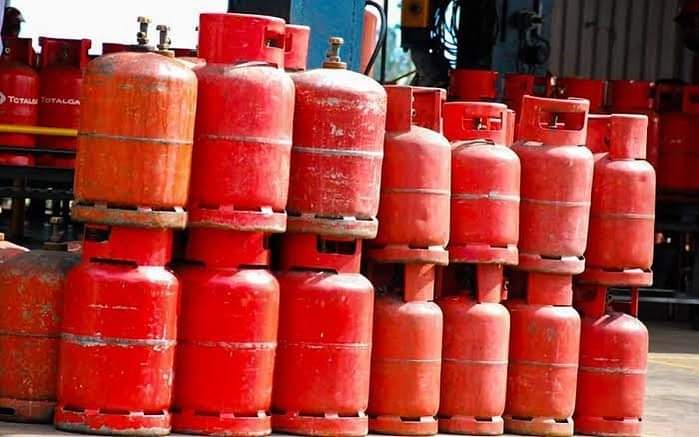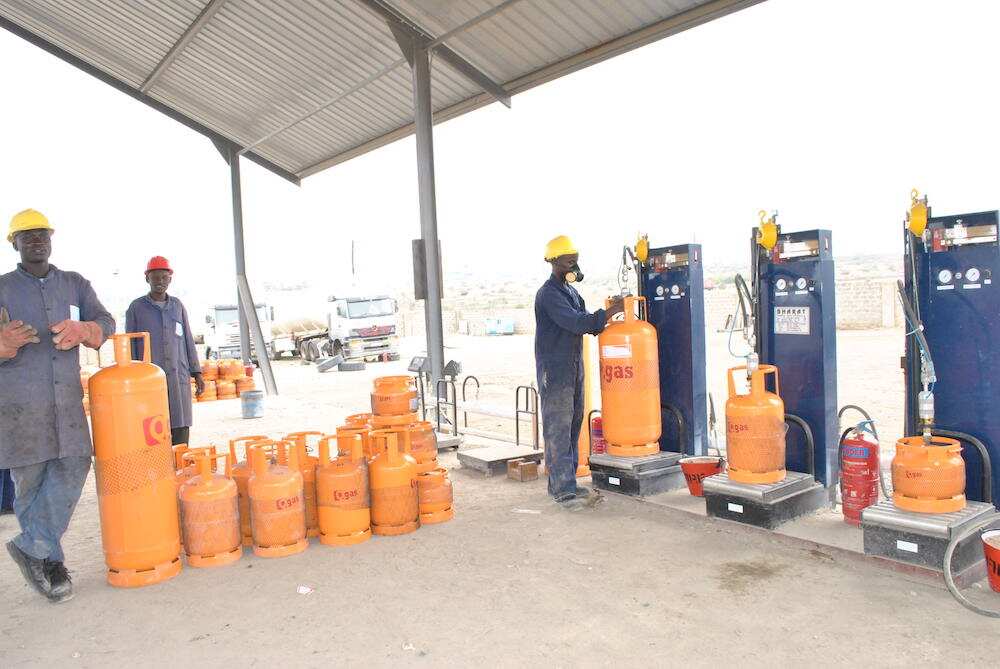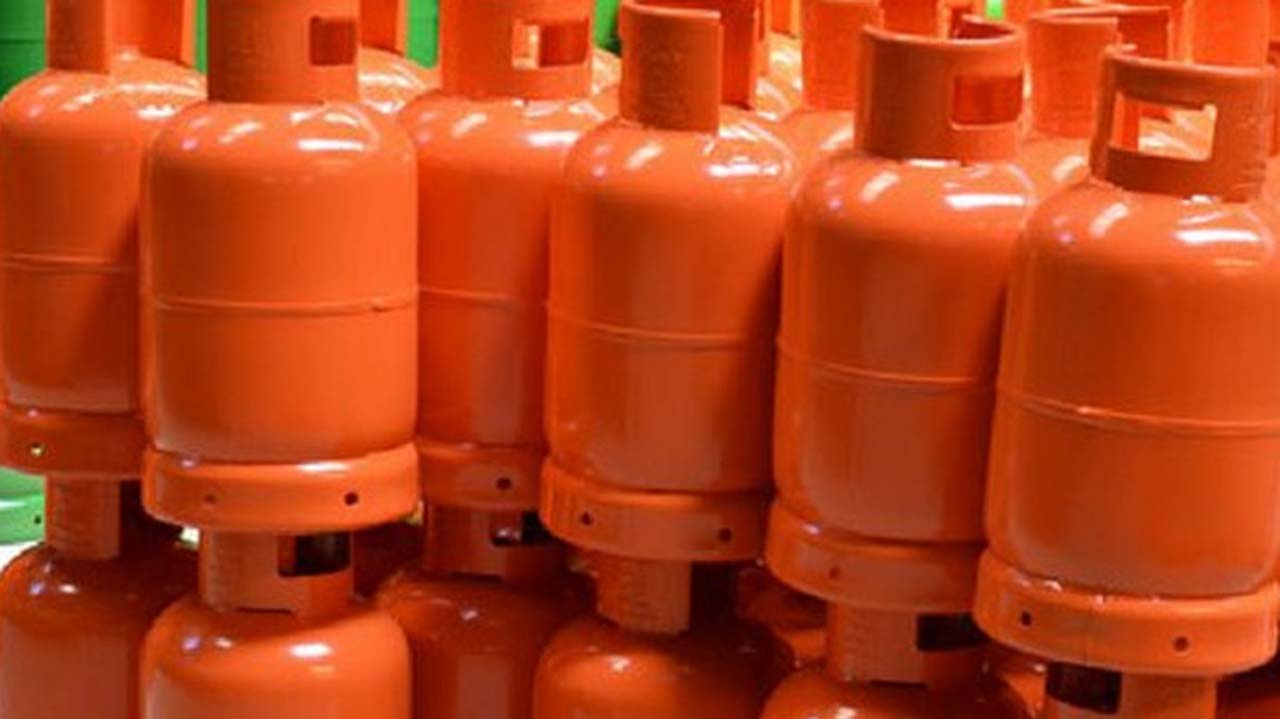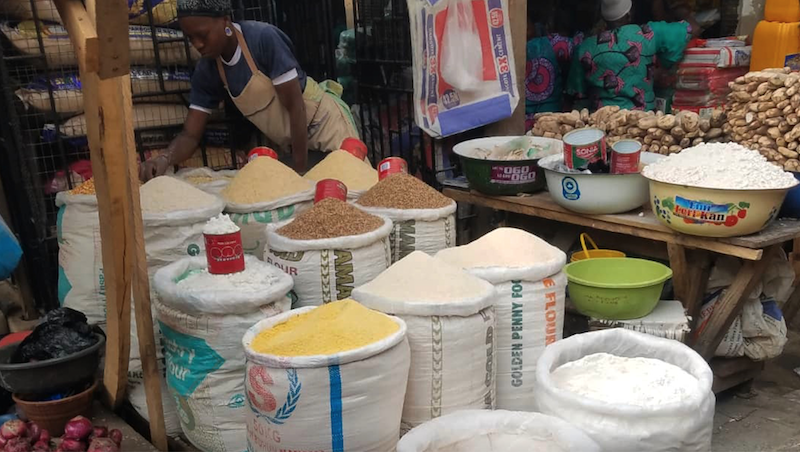The National Bureau of Statistics (NBS) has disclosed that the prices of selected food items increased in December 2022.
This is according to the NBS Selected Food Prices Watch Report for December 2022 released in Abuja on Friday.
The report said that the average price of 1kg beef boneless on a year-on-year basis, increased by 28.75 per cent from N1,846.39 recorded in December 2021 to N2,377.29 in December 2022.
“While on a month-on-month basis, 1kg beef boneless increased by 1.70 per cent from N2,337.46 recorded in November 2022. ”
It showed the average price of 1kg rice (local, sold loose) increased on a year-on-year basis by 19.21 per cent from N424.62 in December 2021 to N506.17 in December 2022.
“On a month-on-month basis, the average price of this item increased by 1.07 per cent from N487.47 recorded in November 2022. ”
The report said the average price of 1kg of tomato on a year-on-year basis rose by 28.40 per cent from N357.03 in December 2021 to N458.42 in December 2022.
“Also, on a month-on-month basis, 1 kg of tomato increased by 0.72 per cent from N455.13 recorded in November 2022. ”
The report showed that the average price of 1kg brown beans (sold loose) rose by 18.45 per cent on a year-on-year basis from N494.83 recorded in December 2021 to N586.14 in December 2022.
“While on a month-on-month basis, the price rose by 1.321 per cent from N578.55 recorded in November 2022.”
The NBS said the average price of Palm oil (1 bottle) increased by 28.73 per cent from N795.57 in December 2021 to N1,024.13 in December 2022.
”On a month-on-month basis, the item grew by 1.74 per cent from the N 1,006.64 recorded in November 2022.”
Also, it said the average price of Vegetable oil (1 bottle) stood at N1,161.76 in December 2022, showing an increase of 29.60 per cent from N896.39 recorded in December 2021.
“On a month-on-month basis, it rose by 1.64 per cent from N1,142.99 recorded in November 2022.”
The report said the average price of a yam tuber stood at N494.83 in December 2022, showing an increase of 18.45 per cent from N494.83 in December 2021.
“On a month-on-month basis, one tuber of yam increased by 1.31 per cent from N578.55 recorded in November 2022. ”
Similarly, it said the average price of 1kg of onion bulb rose by 25.64 per cent on a year-on-year basis from N346.96 in December 2021 to N435.93 in December 2022.
“While on a month-on-month basis, the price rose by 2.40 per cent from N425.71 recorded in November 2022.”
The report said at the state level, the highest average price of rice (local, sold loose) was recorded in Rivers at N655.92, while the lowest price was recorded in Jigawa at N386.01.
It said Cross River recorded the highest average price of 1kg onion bulb at N1,013.96, while the lowest was reported in Kogi with N198.12.
The report said Ebonyi recorded the highest average price of beans (brown, sold loose) at N901.74, while the lowest was recorded in Kebbi state at N368.56.
Also, the report said Imo recorded the highest price of Vegetable oil (1 bottle) at N1,597.22 while Benue recorded the lowest price at N702.78.
It said Akwa Ibom recorded the highest average price of a tuber of yam at N850.23 while Benue recorded the lowest price at N180.76.
Analysis by zone showed that the average price of 1kg beef boneless was higher in the South-East and South-South at N2,936.49 and N2,647.59, respectively.
“While the lowest price of the item was recorded in the North-East at N1,989.86”
The report said the South-South recorded the highest average price of 1kg rice (local, sold loose) at N564.34 followed by the South-West at N528.36, while the lowest price was recorded in the North-West at N447.05.
Also, it said the North-West recorded the highest average price of Palm oil (1 bottle) at N1,161.44, followed by the South-East at N1,142.67, while the North-Central recorded the lowest price at N792.69.
Cooking gas price increased by 27% in one year – NBS
Similarly, the NBS disclosed the average price of 5kg of cooking gas increased from N3,594.81 in December 2021 to N4,565.56 in December 2022.
This is contained in the Bureau’s “Cooking Gas Price Watch’’ for December 2022 released on Friday in Abuja.
The report said the December 2022 price represented a 27 per cent increase compared to what was obtained in December 2021.
The report said on a month-on-month basis, the price rose by 0.36 per cent from N4,549.14 recorded in November 2022 to N4,565.56 in December 2022.
On state profile analysis, the report showed that Kwara recorded the highest average price of N4,950.00 for refilling of a 5kg cooking gas, followed by Adamawa at N4,933.33, and Plateau at N4,917.50.
It said on the other hand, Anambra recorded the lowest price at N4,182.14, followed by Abia and Rivers with N4,196.15 and N4,207.27, respectively.
Analysis by zone showed that the North-Central recorded the highest average retail price of N4,841.07 for 5kg cooking gas, followed by the North-East at N4,593.99.
“The South-East recorded the lowest average price at N4,386.39.for 5kg cooking gas.’’
The NBS also said the average retail price for refilling a 12.5kg cooking gas rose by 0.67 per cent on a month-on-month basis from N10,180.88 in November 2022 to N10,248.97 in December 2022.
“On a year-on-year basis, this rose by 39.78 per cent from N7,332.04 in December 2021.’’
State profile analysis showed that Benue recorded the highest average retail price of N11,250.00 for 12.5kg cooking gas, followed by Cross River at N10,892.86 and Ebonyi at N10,753.57.
On the other hand, the report showed that the lowest average price for 12.5kg of cooking gas was recorded in Yobe at N9,500.00, followed by Zamfara and Gombe with N9,706.25 and N9,750.00, respectively.
Also, the average retail price per litre of kerosene rose to N1,104.61 in December 2022 on a month-on-month basis, showing an increase of 1.94 per cent compared to N1,083.57 recorded in November 2022.
According to its National Kerosene Price Watch for December 2022, on a year-on-year basis, the average retail price per litre of kerosene rose by 136.04 per cent from N467.97 in December 2021 to N1,104.61 in December 2022.
Analysis by state showed that the highest average retail price per litre of kerosene was recorded in Abuja at N1,383, followed by Akwa Ibom at N1,341 and Cross River at N1,300.
“On the other hand, the lowest price was recorded in Bayelsa at N864, followed by Jigawa at N904 and Rivers at N916.’’
The NBS said that analysis by zones showed that the South-East recorded the highest average retail price of kerosene at N1,203 per litre, followed by the South-West at N1,177, while the North-West recorded the lowest at N1,011.
The report showed that the average price of a gallon of kerosene was sold at N3,753 in December 2022, indicating an increase of 4.42 per cent from N3,594 in November 2022.
“On a year-on-year basis, this increased by 137.15 per cent from N1,582.73 in December 2021.’’
State profile analysis showed that Abia recorded the highest average retail price per gallon of kerosene at N4,546, followed by Kwara at N4,515 and Enugu at N4,426.
It said Borno recorded the lowest price at N2,750, followed by Gombe and Bayelsa at N2,775 and N2,814, respectively.
Analysis by the report indicated that the South-East recorded the highest average retail price per gallon of Kerosene at N4,337, followed by the North-Central at N3,967, while the North-East recorded the lowest at N3,378.




